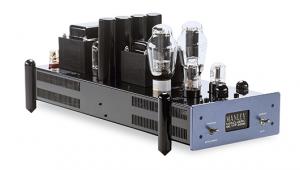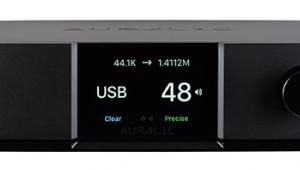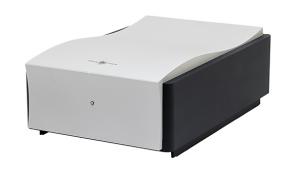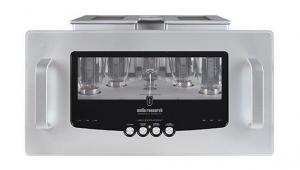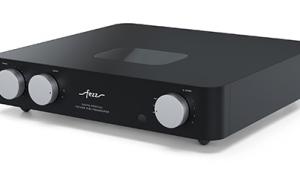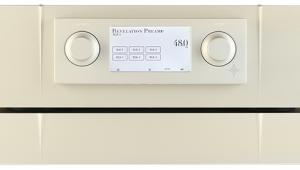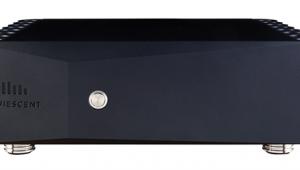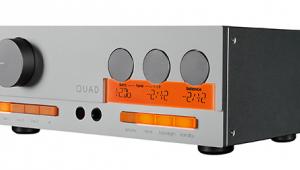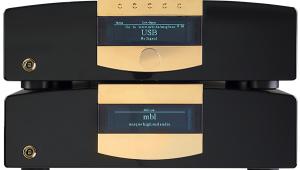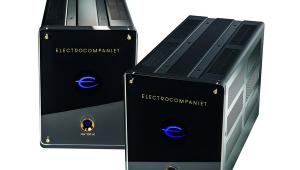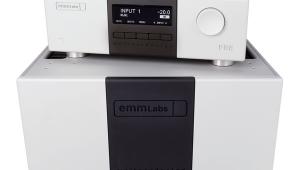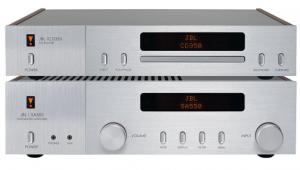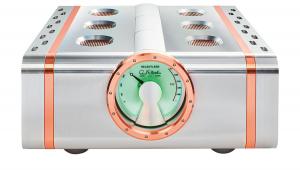Leema Pyxis/ Hydra Ii (£3995/£3495)
The Pyxis is a sturdy, handsomely-styled preamp which, in the best modern fashion, can be used with all manner of amplifi ers despite a plethora of Leema-only features. Pyxis provides both fully-balanced and single-ended analogue operation, with extensive custominstall/ home cinema-friendly settings and sockets. Its price is further ameliorated by the inclusion of digital ins and outs, including USB and S/PDIF in both directions, so the Pyxis is able to accommodate all of your digital sources and feed a computer for archiving.
For another £500, the Pyxis can be supplied with an onboard phono section (based on Leema’s £3k Agena). Remote control, individually confi gurable inputs, selectable balanced or single-ended CD, AV Direct setting, tape and tuner inputs, individual adjustment of gain, bass and treble for each input, separate record and monitor for each input, mono and phase inversion (blessedly available from the remote), EQ defeat, front panel 3.5mm headphone and MP3 sockets – nothing has been left out. It’s a lot of kit for the money.
The Hydra II stereo power amp contains two massive toroidal transformers to power each channel, plus a third dedicated solely to the control circuitry. It’s confi gured to operate as a stereo amplifi er, a mono amplifi er, or as a two-channel amplifi er designated as left or right for bi-amping. It also offers throughput and slave set-ups for just about any multichannel or multi-room package.
Enabling all of this is the company’s ‘Leema’s Intelligent Protocol System’ (aka LIPS). Connected by a directional wire with colour-coded mini-jacks, the system allows greater control over partnered Leema components.
POWER ’N’ PUNCH
The remastered CD of the Rolling Stones’ Exile On Main Street exhibited power and punch, with no exacerbation of the material’s inherent rawness. The silky twang of ‘Sweet Virginia’ sounded so valve-like that any preconceptions were eroded instantaneously: this pairing suffers nothing in the way of exaggerated solid-state-itis.
What some listeners might find captivating is the Leemas’ ability to juggle bottom-octave textures, especially when Charlie Watts’ drums were sounding (deliberately) papery and dry, while Bill Wyman’s bass was loping along with almost alcoholic abandon.
Never did I feel robbed of any information, especially spatial clues. Equally, not once did I feel the cut of too much sibilance, nor a sensation of clinical sterility. When called upon to be nasty, as with the Stones, the Leemas could be as brutal as certain powerhouses at double the price. When asked to behave, with delicate material, out came their Sunday best. The units’ handling of the sublime vocals on early-to-mid-period Doobie Brothers, from the recent MoFi reissues, came so close to my all-valve reference combination of Audio Research REF 5 and Quad II-eighty monoblocks that I had to struggle to pinpoint the differences.
VERDICT
The sheer worthiness, competence, ergonomic intelligence and ‘more-ish’ sound this pair delivers could well catch those unfamiliar with Leema products unawares. Whether with silky Nat ‘King’ Cole recordings or Bad Company via CD, the performance was neutral and uncolored, yet as involving as a tube set-up. Leema’s simply doing something so right. It just may be the UK brand to watch.
Originally published in the Yearbook 2010




